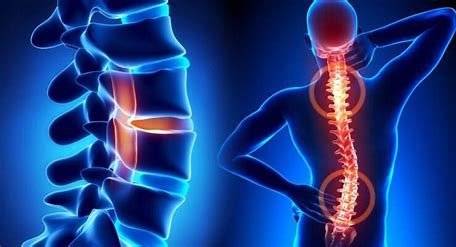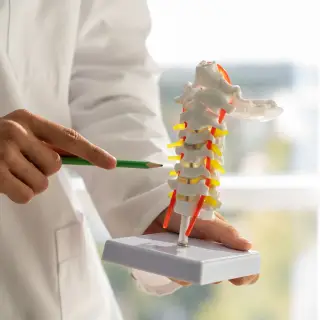Endoscopic Spine Surgery
Endoscopic Spine Surgery: A Minimally Invasive Approach to Back Pain
Endoscopic spine surgery represents an advancement in treating various spinal conditions. This minimally invasive technique offers potential advantages over traditional open back surgery, providing effective treatment with smaller incisions and faster recovery for many patients.

What is Endoscopic Spine Surgery?
Instead of the large incisions typical of open surgery, endoscopic spine surgery uses a specialized, thin tube called an endoscope. This device contains a tiny camera and light, allowing surgeons to see inside the spine with incredible detail during the procedure. Small surgical tools are passed through the endoscope to perform the necessary treatment.
Conditions Treated with Endoscopic Spine Surgery
Herniated disc: A ruptured or bulging disc can be addressed by removing the portion pressing on nerves.
Spinal stenosis: Narrowing of the spinal canal can be treated by relieving pressure on the spinal cord or nerves.
Degenerative disc disease: Worn-out discs can sometimes be addressed by endoscopic techniques.
Sciatica: Nerve pain running down the leg is often linked to issues treatable with an endoscope.
Advantages of Endoscopic Spine Surgery
Smaller incisions: Less than one centimeter cuts mean less tissue damage and scars.
Reduced pain: Smaller incisions typically lead to less post-operative pain.
Faster recovery: Many patients return home the same day or after a short hospital stay.
Less blood loss: Minimally invasive techniques usually result in less blood loss.
Lower risk of complications: Smaller incisions may lower the risk of infections and other complications.
Is Endoscopic Spine Surgery Right for You?
While beneficial for many patients, endoscopic spine surgery isn't suitable for everyone. Factors influencing suitability include:
Type of spinal problem: Certain conditions are better addressed with traditional open surgery.
Overall health: Underlying health conditions may impact candidacy.
Surgeon's experience: This technique requires specific training and expertise.
Consulting Your Doctor
If you're struggling with chronic back or neck pain, consult a qualified orthopedic spine surgeon. They can evaluate your condition, review imaging studies, and discuss whether you may be a good candidate for either endoscopic or traditional open surgical approaches.
Important Note: Even minimally invasive procedures carry risks. Discuss potential complications and success rates with your surgeon.
Disclaimer: This article is for informational purposes only. Please seek professional medical advice for all health concerns and to determine the right treatment approach for your individual needs




